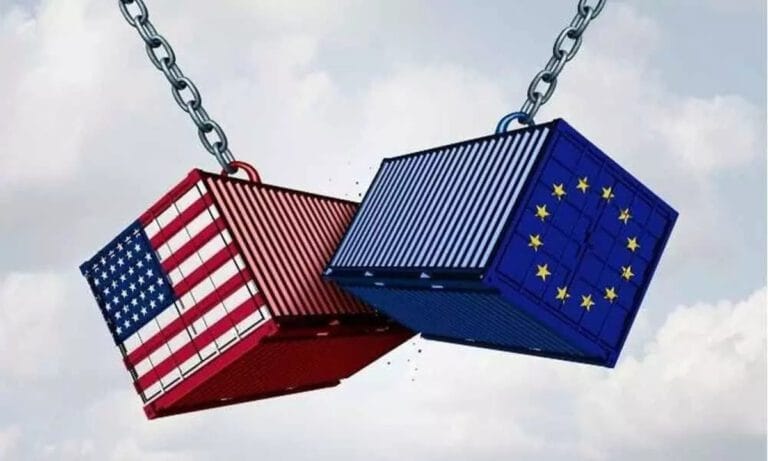🎧 Listen to This Article
The European Union has delayed its first round of retaliatory tariffs against the United States over President Donald Trump’s metals tariffs, pushing the measures to mid-April for further negotiations and adjustments to targeted goods.
EU Adjusts Tariff Timelines for Strategic Flexibility
Initially, the European Commission planned to reintroduce 2018 tariffs on €4.5 billion ($4.9 billion) of U.S. imports on April 1, followed by an additional €18 billion in tariffs on April 13. However, EU Trade Commissioner Maros Sefcovic announced that both sets of measures would now be aligned for implementation in mid-April, allowing EU member states to discuss them simultaneously and extend talks with Washington.
Limited Progress in Trade Talks
Despite diplomatic efforts, negotiations between the EU and U.S. have yielded little progress. The Biden administration, set to impose “reciprocal” tariffs on April 2, has shown minimal interest in discussing tariff reductions on industrial goods.
“I don’t think that the U.S. thinking is in that direction,” said Sefcovic. “Their priority appears to be attracting investment and re-industrializing, primarily through tariff policies. I hope we can eventually discuss reductions, but we are clearly not there yet.”
Re-evaluating U.S. Goods Targeted
One of the most controversial elements of the EU’s countermeasures is the proposed 50% tariff on U.S. bourbon, which prompted President Trump to threaten a 200% tariff on European wines and alcoholic beverages.
Several European leaders have urged caution:
- French Prime Minister Francois Bayrou questioned the focus on American whiskey, suggesting the EU may be making a strategic mistake.
- Italian Prime Minister Giorgia Meloni, a known Trump ally, warned against escalating the trade dispute, stating, “I am not certain that responding to tariffs with more tariffs is necessarily a good deal.”
- Irish Prime Minister Micheal Martin, representing a major whiskey-exporting nation, welcomed the delay, emphasizing the importance of assessing the U.S. tariff package before responding strategically.
Next Steps in EU-U.S. Trade Policy
The delay in EU counter-tariffs allows for potential revisions to targeted goods and extended negotiations with Washington. However, with the U.S. preparing its April 2 tariff adjustments, European leaders will need to decide whether to continue de-escalation efforts or proceed with full-scale retaliation.
For further details, clarification, contributions, or any concerns regarding this article, please contact us at editorial@tax.news. We value your feedback and are committed to providing accurate and timely information. Please note that our privacy policy will handle all inquiries



